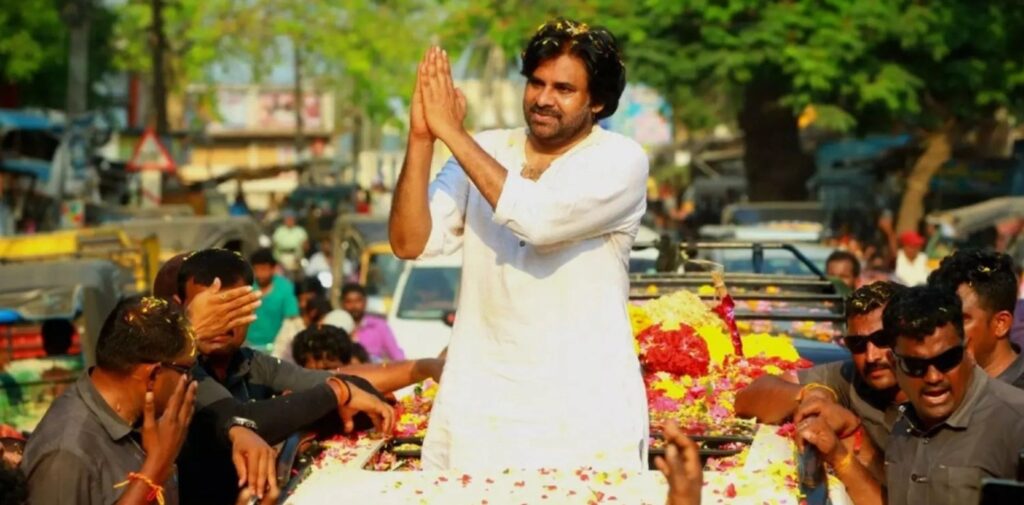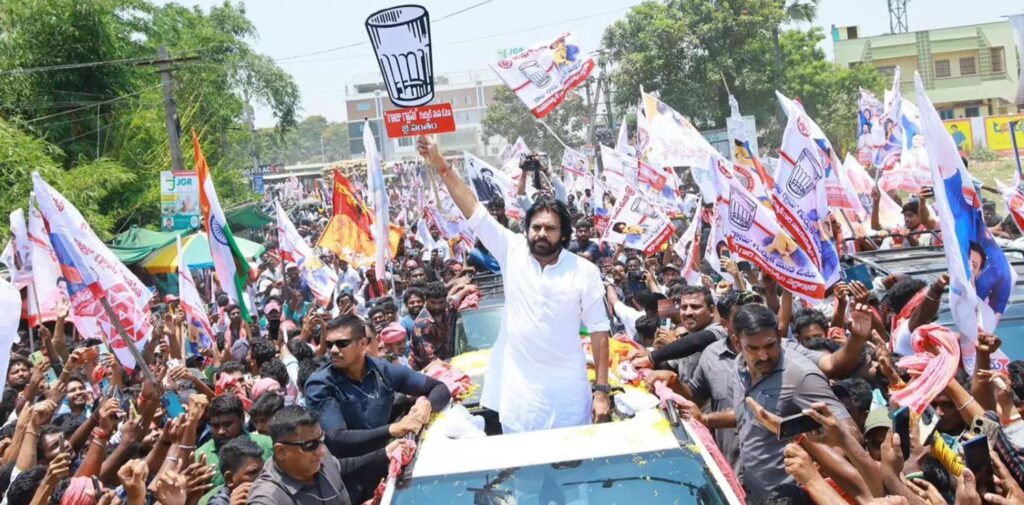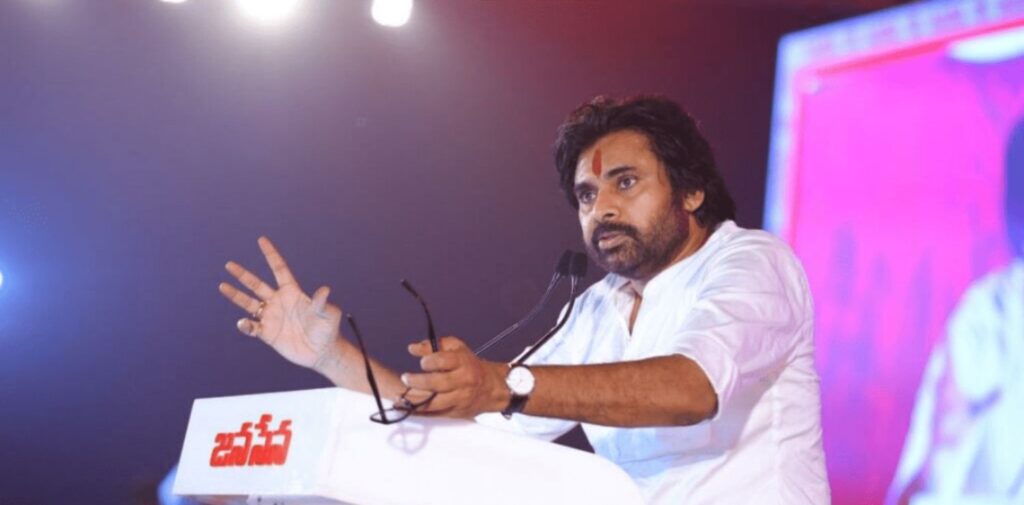In the ever-evolving landscape of Indian politics, where regional dynamics often overshadow national narratives, Pawan Kalyan emerges as a compelling case study of a rising political star. His ascent in South India, particularly in Andhra Pradesh, reflects a complex interplay of personal charisma, strategic acumen, and the changing tides of political alliances. The rise of Pawan Kalyan is not just a regional phenomenon; it signals shifting power dynamics that could impact national politics, especially for the BJP, which has historically struggled to make a significant dent in the South.

A Star with a Meteoric Rise
Pawan Kalyan’s journey from a prominent film actor to a formidable political figure is a narrative of perseverance and strategic foresight. Despite lacking a traditional political lineage, Kalyan’s rise to the position of Chief Minister at a remarkably young age demonstrates his unique appeal and the evolving nature of political authority in India. His entry into politics through his party, Jana Sena, initially seemed to be a strategic move to capitalize on his popularity. However, his subsequent achievements have solidified his position as a significant player in South Indian politics.
Breaking the Mould
One of the most striking aspects of Kalyan’s political career is his ability to break away from established political norms. Unlike many of his contemporaries who rely heavily on family connections and traditional party structures, Kalyan’s ascent is a testament to his personal brand and grassroots connect. His success in Andhra Pradesh, where he has managed to consolidate a substantial following, is particularly notable in a region dominated by regional and local parties.
The political landscape in Andhra Pradesh has been traditionally dominated by regional parties like the Telugu Desam Party (TDP) and the Yuvajana Sramika Rythu Congress Party (YSRCP). These parties have managed to capture the local sentiment and maintain significant influence over state politics. Yet, Kalyan’s Jana Sena has managed to carve out a significant niche, challenging the established order and offering a fresh alternative to the electorate.

A Compelling Rally Presence
The sheer scale of Pawan Kalyan’s rallies and his ability to draw massive crowds is another testament to his political prowess. Observers have noted that his rallies often attract more enthusiasm than those of other prominent leaders, including Narendra Modi. This crowd-pulling ability is not just a reflection of his popularity but also an indicator of his potential to mobilize a significant voter base.
In the 2024 elections, the energy and numbers at Kalyan’s rallies have been particularly striking. The presence of large, enthusiastic crowds not only amplifies his message but also reflects a growing dissatisfaction with traditional political options, providing Kalyan with a fertile ground for his political messaging.
Navigating BJP’s Challenges in the South
The BJP, despite its national success, has faced significant challenges in establishing a stronghold in South India. The region is characterized by a complex political fabric with a plethora of regional parties that have deep-rooted connections with local communities. Additionally, South Indian states have been more inclined towards parties that advocate for the rights and interests of local communities, including significant Muslim populations.
Pawan Kalyan’s rise poses both a challenge and an opportunity for the BJP. On one hand, his success indicates a shift in political loyalties and a potential erosion of BJP’s influence. On the other hand, Kalyan’s alignment with BJP could also present an opportunity for the party to leverage his popularity and expand its base in the South. The BJP’s strategy in the region will need to adapt to the local political landscape, recognizing the rising influence of leaders like Kalyan.

The Local and National Impact
Kalyan’s influence extends beyond the regional boundaries of Andhra Pradesh. His political maneuvers and successes could potentially reshape the national political landscape, especially if he continues to build his influence and aligns with national parties like the BJP. His ability to connect with voters, coupled with his strategic approach, positions him as a potential bridge between regional aspirations and national ambitions.
Moreover, Kalyan’s rise highlights the increasing importance of local leaders in shaping national political narratives. As regional dynamics continue to play a critical role in Indian politics, the emergence of leaders like Kalyan underscores the need for national parties to engage more deeply with regional issues and leaders.
Determination
Pawan Kalyan’s journey from film star to political powerhouse is a compelling story of ambition, strategy, and resilience. His ability to attract massive crowds, challenge established political structures, and build a substantial following in Andhra Pradesh sets him apart as a significant political figure. For the BJP, Kalyan represents both a challenge and an opportunity in the South. As the political landscape continues to evolve, the impact of leaders like Kalyan will be crucial in shaping the future of Indian politics.
In understanding Kalyan’s rise, one gains insight into the shifting paradigms of Indian politics, where personal charisma and strategic maneuvering often outweigh traditional political advantages. His story is a testament to the changing nature of political influence in India, reflecting broader trends that will continue to shape the country’s political future.




